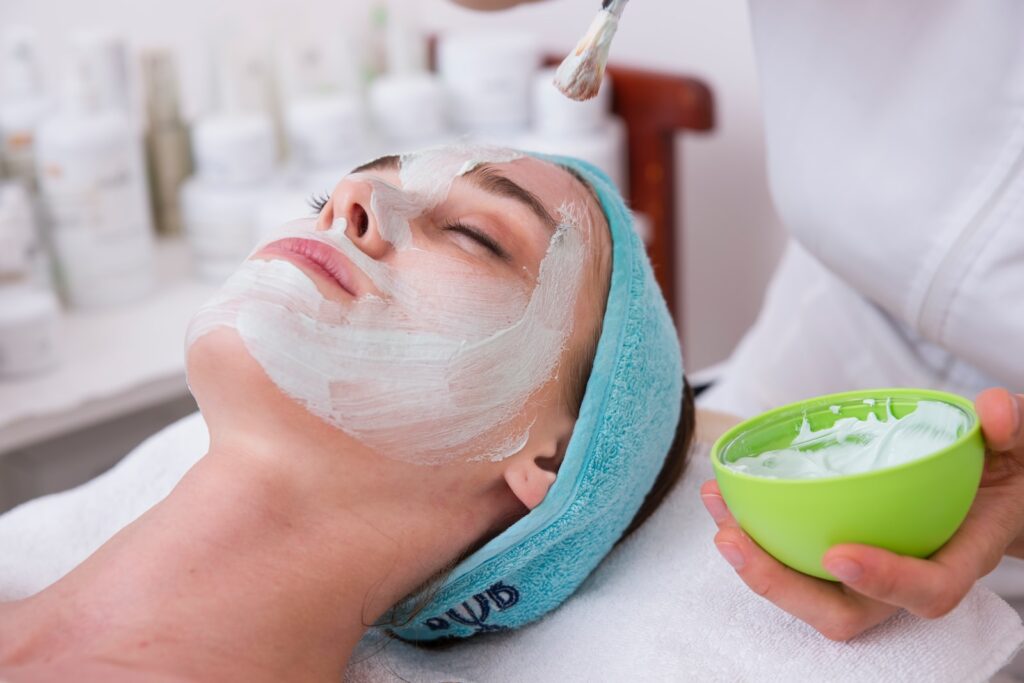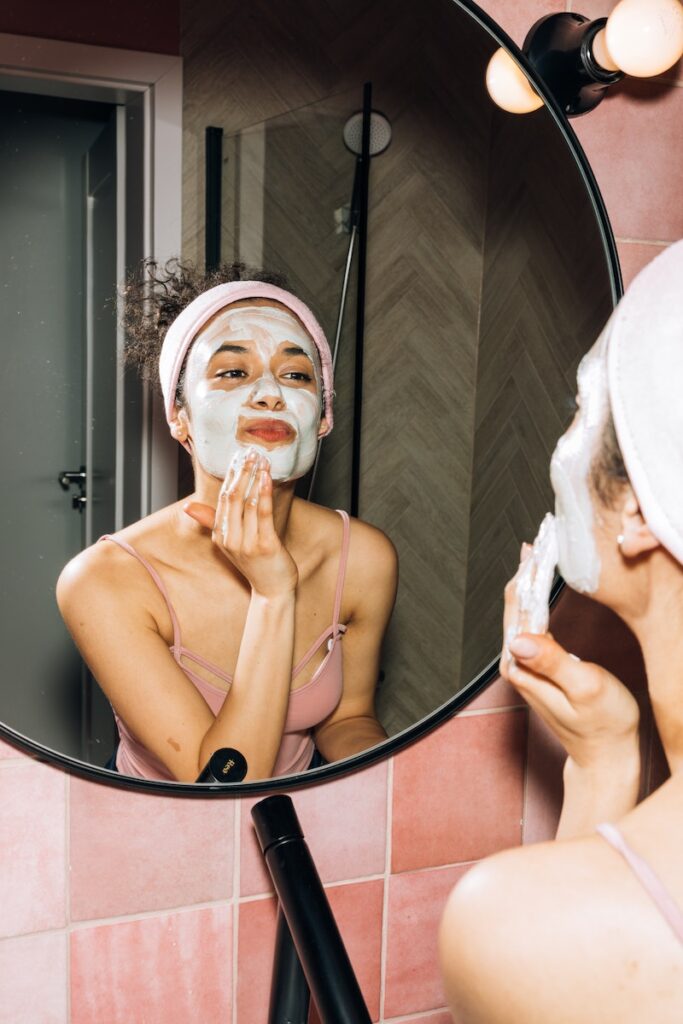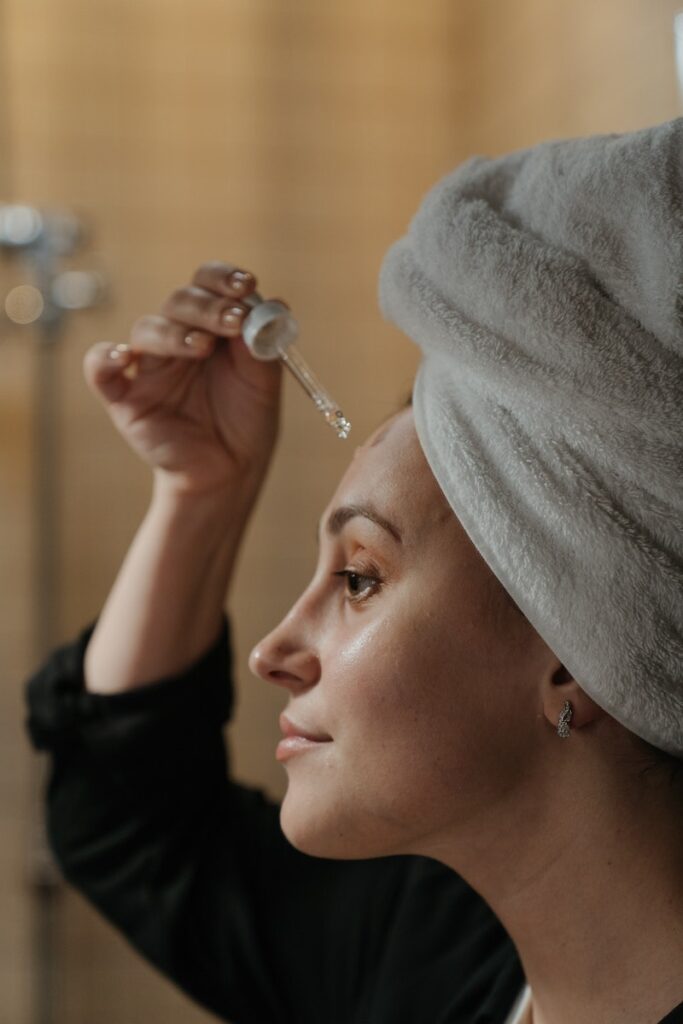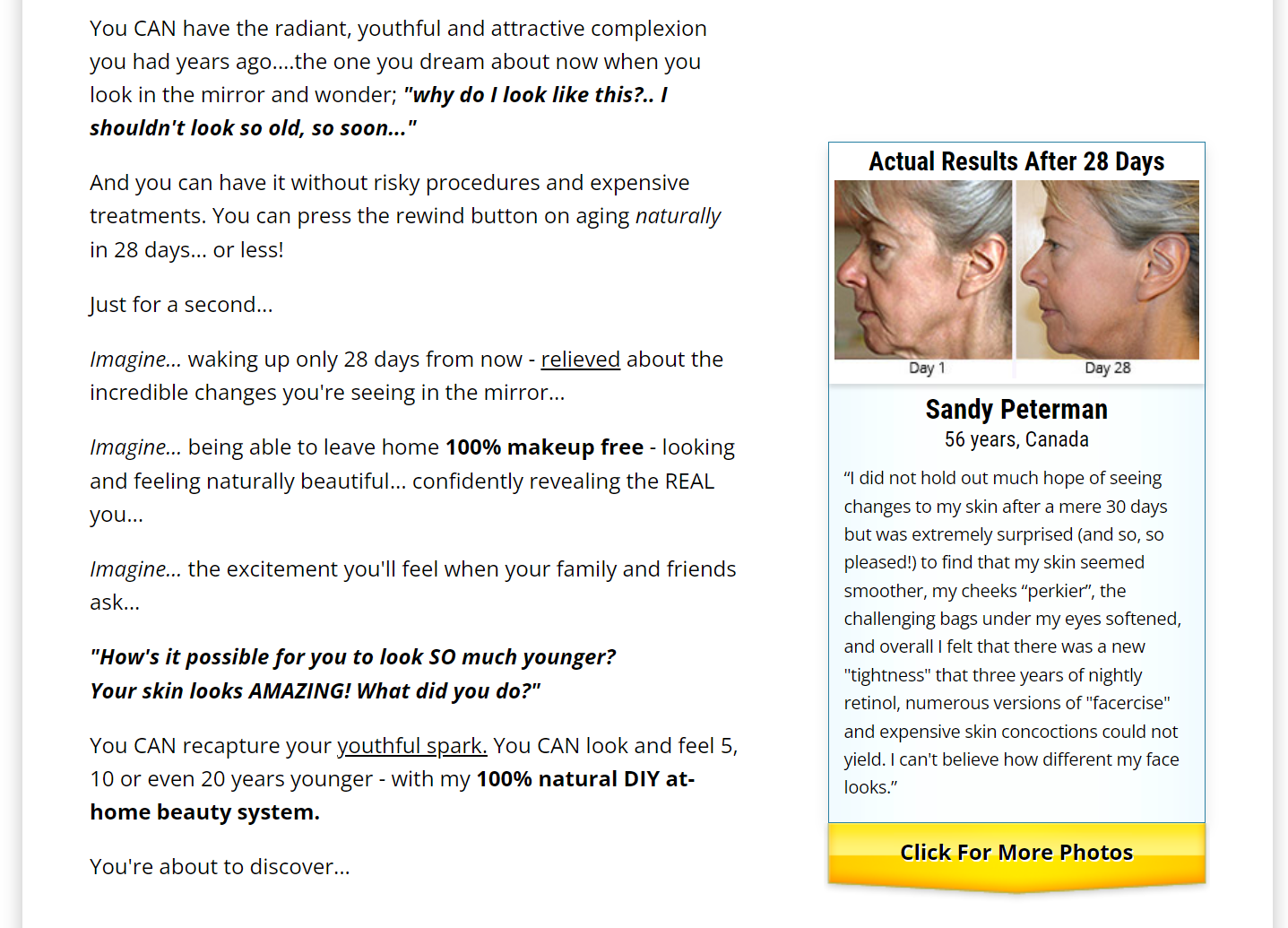I. Introduction
We all share the age-old dream of discovering the elusive fountain of youth. The desire to maintain a youthful and vibrant appearance transcends age. While the mythical fountain remains elusive, there exist time-tested techniques to preserve our skin’s youthful allure. This comprehensive guide unveils the secrets to achieving and maintaining timeless, radiant skin.
II. Decoding the Science of Skin Aging
A. Unveiling the Mechanisms of Skin Aging
Understanding how our skin ages is crucial to crafting an effective anti-aging regimen. As time passes, our skin experiences a slowdown in cell turnover, resulting in the accumulation of dead skin cells that lead to dullness. Simultaneously, the production of vital components like collagen, elastin, and hyaluronic acid diminishes. These molecules provide structure and moisture retention, attributes fundamental to youthful skin. Their depletion leads to a loss of fullness and smooth texture, rendering the skin thinner and drier.
Skin aging is a dual process involving intrinsic (natural aging) and extrinsic factors (external elements like sun exposure). Prolonged exposure to the sun accelerates collagen degradation and triggers irregular pigmentation, such as age spots. These cumulative aging factors manifest as fine lines, wrinkles, sagging, and uneven pigmentation, characteristics associated with mature skin.
B. Factors Shaping Skin Aging
- Sun ExposureThe foremost contributor to accelerated skin aging is UV exposure, accounting for up to 90% of visible aging signs. Regular sunscreen application is a non-negotiable practice.
- Lifestyle ChoicesSmoking, insufficient sleep, and unmanaged stress negatively impact skin health. A healthy lifestyle, on the other hand, fosters youthful skin.
- GeneticsGenetics play a pivotal role in determining the pace of skin aging. Factors such as ethnicity, bone structure, and natural skin pigmentation also influence the aging process.
III. Crafting a Tailored Skin Care Routine
Achieving ageless skin necessitates daily cleansing, adequate hydration, and protection against environmental aggressors.
A. Essential Components of Daily Skin Care
- CleansingCleansing is a non-negotiable step, ridding the skin of dirt, oil, and impurities that can clog pores and cause breakouts or irritation. Opt for a mild cleanser and use it twice daily.
- ExfoliationGentle exfoliation performed twice a week unveils brighter, smoother skin by removing dead cells. For aging skin, opt for chemical exfoliants containing AHA or BHA.
- MoisturizationHydrating the skin is paramount. Seek out rich, emollient moisturizers infused with antioxidants, ceramides, and peptides. Apply moisturizer to damp skin following cleansing.
B. Selecting Appropriate Products
- Identifying Your Skin TypeUnderstanding your skin type is crucial when selecting products. Ingredients suitable for oily, acne-prone skin may not be suitable for mature skin. Hence, opt for hydrating, nourishing formulas.
- Reading Product LabelsLook for potent anti-aging ingredients like retinol, vitamin C, hyaluronic acid, and niacinamide. Avoid harsh irritants like alcohol, synthetic fragrances, and drying detergents.

IV. The Nexus Between Nutrition and Skin Health
Diet plays a pivotal role in determining skin health and appearance. Nourishing your skin with antioxidant-rich foods and adequate hydration is essential.
A. The Impact of Diet on Skin Health
Skin relies on nutrients from your diet for its proper function and regeneration. A diet lacking antioxidants, healthy fats, and hydration deprives the skin of essential compounds that maintain suppleness and moisture. Nutrition also acts as a defense against oxidative stress induced by factors such as sun exposure and pollution.
B. Foods that Foster Youthful Skin
- Antioxidant-Rich FoodsAntioxidants minimize damage caused by free radicals that break down collagen. Include berries, leafy greens, green tea, and beans in your diet.
- Omega-3 Fatty AcidsOmega-3s reduce inflammation, dryness, and hyperpigmentation. Incorporate fatty fish, walnuts, olive oil, and flax into your meals.
- Hydration and Water IntakeAdequate hydration plumps up the skin, preventing dullness and wrinkles. Aim for a daily intake of at least 64 ounces of water.
V. Lifestyle Changes for Youthful Skin
Embracing healthy habits shields your skin from premature aging. Prioritize the following aspects to promote lasting skin health.
A. The Significance of Sleep
Chronic sleep deprivation accelerates the aging process. Research shows that sleeping less than 5 hours per night significantly increases visible signs of skin aging. Strive for 7-9 hours of sleep nightly.
B. Stress Management
Unmanaged stress negatively impacts the skin by raising cortisol levels. Combat stress through practices such as yoga, meditation, massage, and self-care.
C. Exercise and Its Impact on Skin
Regular exercise improves circulation, hormone balance, and stress relief – all of which benefit the appearance of your skin. Aim for moderate exercise on most days of the week.
VI. Sun Protection: Your Shield Against Aging
UV radiation from the sun ranks as the foremost enemy of youthful skin. Adhering to rigorous sun protection practices is non-negotiable.
A. Sunscreen: Your Skin’s Guardian
Apply broad-spectrum sunscreen with a minimum SPF of 30 to exposed skin whenever you venture outdoors. Reapply every two hours during prolonged outdoor activities.
B. Sun Protection Strategies
- UV ClothingWear tightly-woven clothing that covers your arms and legs, coupled with wide-brimmed hats.
- Seeking ShadeLimit direct sun exposure, especially during peak intensity hours (10 am-2 pm).
VII. Exploring Advanced Skin Care Techniques
While over-the-counter creams provide a foundation, consider cosmetic procedures and prescription skin treatments for more dramatic results.
A. Potent Serums and Specialized Products
Investigate serums with concentrated formulas tailored to address specific concerns such as lines, dark spots, hydration, and antioxidant protection.
B. Professional Treatments
- Chemical PeelsChemical peels dissolve the top skin layer, revealing fresh, new skin. They are particularly effective for pigmentation issues and fine lines.
- MicrodermabrasionThis treatment employs fine crystals to remove the top skin layer, enhancing radiance and smoothness.

VIII. The Role of Hydration
Chronic dehydration manifests on your skin. Maintain internal and external hydration to achieve a plump and dewy complexion.
A. The Benefits of Hydration
Water plumps up the skin, diminishes fine lines, eliminates toxins, facilitates nutrient transportation, and imparts radiance to dull complexions. Proper hydration also minimizes breakouts.
B. Hydration Strategies
Consume a minimum of 8 glasses of water daily, incorporate hydrating foods like cucumbers and tomatoes into your diet, and use emollient moisturizers containing hydrating ingredients like hyaluronic acid.
IX. Leveraging Anti-Aging Ingredients
The application of topical products rich in antioxidants is instrumental in preserving youthful skin as we age.
A. Embracing the Power of Retinoids
Retinoids, derivatives of vitamin A, are the gold standard in anti-aging. They enhance collagen synthesis, fade discoloration, and treat lines. Moreover, they stimulate cell turnover for plump and smooth skin. Apply them at night, beginning with over-the-counter retinol for beginners. Those with advanced signs of aging can consult dermatologists for prescription-strength Retin-A.
B. Harnessing the Benefits of Vitamins
- Vitamin CVitamin C boasts potent antioxidant properties, inhibiting pigment production and supporting collagen synthesis. Opt for L-ascorbic acid serums for maximum benefits.
- Vitamin EThis antioxidant protects against sun damage and reinforces the skin barrier. It may also aid in reducing UV-related hyperpigmentation.
X. Steering Clear of Common Skin Care Mistakes
Equally important as adopting positive habits is refraining from practices that promote premature aging. Avoid these common pitfalls:
A. Over-Exfoliating
Excessive scrubbing, the use of harsh products, and physical abrasion can harm the skin. Limit exfoliation to once or twice weekly using chemical exfoliants.
B. Neglecting the Neck and Chest
The delicate skin on the neck and chest requires care too. Generously apply products, including sunscreen, to these areas to prevent signs of aging.
C. Inconsistent Routine
Inconsistent skincare regimens yield limited results. Commit to a consistent routine to witness the desired changes in your skin.
XI. Tailoring Your Routine to Your Needs
There exists no one-size-fits-all approach to anti-aging skincare. Adjust your products and techniques according to your evolving needs as you age.
A. Customizing Skin Care for Different Life Stages
- In your 20s: Focus on prevention, establishing habits like daily SPF application and introducing anti-aging serums.
- In your 30s: Incorporate targeted treatment products such as retinol cream and vitamin C serums as lines begin to appear.
- In your 40s and beyond: Consider cosmetic interventions like prescription retinoids, chemical peels, and collagen-stimulating laser treatments to address existing damage.
B. Adapting to Seasonal Changes
Skin tends to become drier in colder months and oilier in humid summers. Adjust your skincare products accordingly – opt for richer hydration in winter and oil-free, mattifying formulas in summer.
XII. Embracing Natural Remedies for Youthful Skin
Nature offers gentle, non-toxic ingredients that nurture the skin. Experiment with these age-old remedies:
A. Aloe Vera
This “plant of immortality” heals and hydrates the skin. Apply fresh gel from the leaf or opt for 100% pure aloe vera juice.
B. Honey and Turmeric Face Masks
These ingredients possess antibacterial and antioxidant properties that enhance skin’s radiance. Consider incorporating a weekly mask into your skincare routine.
XIII. Maintaining Youthful Skin for Men
Men have unique skincare requirements. Follow these tips for enduring skin health:
A. Tailoring to Gender-Specific Needs
Men’s skin is prone to specific issues such as razor bumps, large pores, blackheads, and breakouts due to shaving, oiliness, and slower cell turnover. Seek out products formulated to address these needs.
B. Grooming Guidance
- Shave with a sharp, single blade and quality shaving cream to prevent irritation.
- Exfoliate regularly to ward off ingrown hairs and clogged pores.
- Use a daily moisturizer with SPF specially designed for thicker, oilier male skin.
XIV. Aging Gracefully: Embracing Change
A youthful spirit and a positive outlook are as crucial as skincare products for graceful aging. Focus on self-acceptance and perspective maintenance as you mature.
A. Embracing Self-Acceptance
Aging is a privilege denied to many. Learn to appreciate your body and health, relinquishing unrealistic standards of physical “perfection.”
B. Confidence and Beauty
True beauty emanates from within. Cultivate confidence and vibrancy through self-care, nurturing your mind, body, and spirit. Live purposefully and healthfully at every age.
XV. In Conclusion
Numerous steps can be taken to ensure enduring skin youthfulness. Key among these are sun protection, a gentle skincare regimen, hydration, and a healthy lifestyle. Provide your skin with the tools it needs to remain supple and rejuvenated throughout the aging process. Commit to intelligent habits, embrace change gracefully, and your skin will reflect your inner radiance.

XVI. Frequently Asked Questions (FAQs)
Still have questions about maintaining age-defying skin? Here are answers to common queries:
A. Can I naturally reverse signs of aging?
While complete reversal isn’t possible, natural ingredients like vitamin C and retinol can significantly improve skin texture and tone over time.
B. When should I start a skincare routine?
Ideally, begin a skincare regimen in your early 20s with sunscreen and moisturizer for prevention. However, it’s never too late to start improving your skincare routine; benefits can be observed at any age.
C. Are expensive skincare products worth it?
Not necessarily. Many affordable drugstore brands offer similar formulas to high-end products. Prioritize proven ingredients like retinol rather than assuming higher cost equals superior quality. Some medical-grade products prescribed by dermatologists may justify the investment.
D. How long does it take to see results from a new skincare routine?
Most skin will show some improvement within 6-8 weeks, with full benefits realized over several months. Patience is key; don’t give up too quickly.
E. Can diet truly impact my skin’s appearance?
Absolutely. A diet rich in antioxidants, healthy fats, and hydration provides essential nutrients for skin regeneration and protection, significantly affecting skin quality.
F. Should I consult a dermatologist for a personalized skincare plan?
It’s advisable, especially if you have acne-prone skin or require treatment for severe sun damage, unusual pigmentation, or advanced wrinkles. Dermatologists can assess your skin and tailor a regimen to your specific needs.
Want a secret pill that can make you look 20 years younger within the month? Changes never though possible just by taking one secret formula to a younger you? Click Here!

